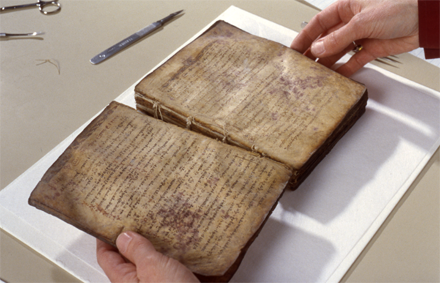
April 3, 2014, by Ross Balzaretti
Jacques Le Goff (1924-2014)
I opened my Guardian yesterday to read that the famed French historian Jacques Le Goff has died aged 90. Like the late Eric Hobsbawm, Le Goff was one of the great public intellectuals of the last fifty years, a powerful advocate for the societal importance of history. He pioneered new ways of seeing the Middle Ages by linking social and intellectual history. His work, always in French, was translated into many other languages, including English.
When I first arrived at Nottingham in 1990 Le Goff’s La civilisation de l’Occident médiéval had recently been published in English as Medieval Civilization (in a brilliant version by Julia Barrow). Although a work of haute vulgarisation that book, like all of Le Goff’s others, had a radical point to make to a public who regarded (and still do?) ‘medieval’ as synonymous with ‘bad’: the Middle Ages (not Antiquity) was the foundation of European civilisation. His first publication in 1948 (aged only 24) was an article about a Czech student at the University of Paris in the fourteenth century, characteristic of Le Goff’s lifelong interest in education and universities. Thereafter his huge output was continuous, varied and aimed at a wide audience. Having published his first article in Annales in 1960, he was associated with that revolutionary journal for decades, publishing some of his best work in it. An example is a classic article (Annales, vol. 22, 1967) about the interaction between ‘high’ and ‘low’ (clerical and folkloric in his terms) in Merovingian cultures. I read this as an undergraduate in the early 1980s at the prompting of Wendy Davies (later my PhD supervisor) who expressed surprise at my lukewarm response. I didn’t like it because of the absence of hard evidence in footnotes but came to realise (as Wendy had suggested) just how important such interventions were in creating wholly new ways of understanding poorly documented periods. Le Goff was, of all the Annaliste historians, the most interested in how anthropological ideas and methods could speak to medievalists, enabling us to read our sources in unaccustomed ways. Where he led others followed, a good example being The Languages of Gift in the Early Middle Ages, edited by Wendy Davies and Paul Fouracre (Cambridge, 2010). Le Goff moved from interest in cultural understandings of economies (time, rituals, work, trades and universities) to more intellectual themes (purgatory, mentalities and memory). Unexpectedly for an Annales historian he published biographies of St Louis and St Francis of Assisi. These were surely the inevitable outcome of his concern with past patterns of thought, both collective and individual.
His output continued until very recently. Appreciations are appearing around the world as I write. All of them laud his remarkable research. All reiterate his role as a public figure in France. A few have reminded us that he was also a great teacher, an advocate for the importance of teaching and facilitator others’ research, notably through his editorship of the Annales and many volumes of essays. He already seems like someone from another age.
Main image: The Archimedes Palimpsest being disbound. Copyright the owner of the Archimedes Palimpsest, licensed for use under Creative Commons Attribution 3.0 Unported Access Rights. John Dean Photographer.

I concur with all of the above. Goff’s ‘The Birth of Purgatory’ (trans. Arthur Goldhammer) had a great influence on my MA dissertation. I initially found Goff’s work difficult and, occasionally, obscure. However, it changed my views considerably on my chosen topic, and as I gained more understanding of his approach to purgatory, I realised what a groundbreaking piece of work that book actually is, filled to the brim with his incredible insight into medieval world views. My only regret is not being able to read Goff in his original French.